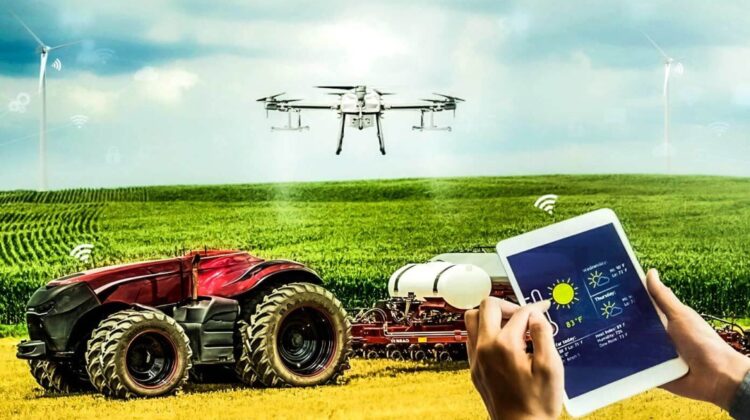
Modern agriculture is undergoing a revolutionary transformation, thanks to the integration of advanced technologies. From improving crop yields to reducing resource wastage, the role of technology in modern agriculture is pivotal. Platforms like https://sumosearch.io/ are helping farmers and researchers access valuable tools and insights. This integration not only addresses the challenges of traditional farming but also paves the way for sustainable food production.
The Impact of Technology on Crop Production
Technology has drastically improved crop production through innovations like precision farming. Farmers can now use sensors, drones, and GPS mapping to monitor soil conditions, weather, and crop health. These tools enable precise application of water, fertilizers, and pesticides, resulting in higher yields and better quality crops.
Top Emerging Technologies in Agriculture
Several emerging technologies are reshaping modern agriculture:
- Artificial Intelligence (AI): AI-powered tools analyze data to predict crop performance and suggest optimal farming practices.
- Robotics: Robots are automating labor-intensive tasks like planting, harvesting, and weeding.
- Blockchain: Ensures transparency in supply chains, enabling traceability from farm to table.
These innovations make farming more efficient and productive.
How Technology is Reducing Resource Wastage
Resource optimization is a key benefit of technology in agriculture. Smart irrigation systems use sensors to supply water only when needed, conserving water significantly. Similarly, automated machinery reduces fuel consumption by performing tasks more efficiently. These advancements minimize resource wastage, making farming more sustainable.
The Role of Big Data in Decision Making
Big data analytics plays a crucial role in modern agriculture. By analyzing weather patterns, soil quality, and market trends, farmers can make informed decisions. Predictive analytics helps farmers plan their planting schedules and mitigate risks like pest infestations or extreme weather.
Enhancing Livestock Management Through Technology
Technology has also transformed livestock management. Farmers use wearable devices and sensors to monitor animal health, track feeding habits, and detect illnesses early. These tools improve animal welfare and increase productivity, benefiting both farmers and consumers.
The Importance of Sustainable Farming Practices
Sustainability is a major focus in modern agriculture. Technologies like hydroponics and vertical farming allow crops to grow with minimal water and land use. Renewable energy solutions, such as solar-powered machinery, reduce the carbon footprint of farming operations.
Challenges Faced in Implementing Agricultural Technology
Despite its benefits, adopting technology in agriculture comes with challenges:
- High Costs: Advanced tools and equipment can be expensive for small-scale farmers.
- Lack of Technical Knowledge: Many farmers require training to use new technologies effectively.
- Connectivity Issues: Rural areas often lack the internet access needed for smart farming solutions.
Addressing these challenges is vital for widespread adoption.
READ MORE : https://sumosearch.io/
The Future of Technology in Agriculture
The future of agriculture lies in continued technological advancements. Developments like autonomous tractors, AI-driven crop management, and gene editing will further enhance productivity. Increased collaboration between tech companies and farmers will drive innovation and make these technologies accessible to all.
Conclusion
The role of technology in modern agriculture is transformative, revolutionizing how food is grown, harvested, and distributed. Just as innovations help farmers optimize their practices, understanding how I sleep at night naturally can emphasize the importance of balance and sustainability in all aspects of life. From improving efficiency to promoting sustainability, technology has become an essential tool for farmers worldwide. By addressing challenges and embracing innovations, modern agriculture can continue to evolve, ensuring food security for future generations.

Leave a Reply